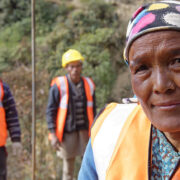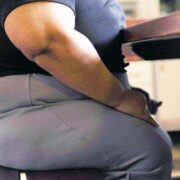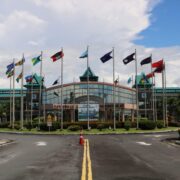Employment-related gender gaps greater than previously thought, ILO report finds
Black Immigrant Daily News
Gender imbalances in access to employment and working conditions are greater than previously thought and progress in reducing them has been disappointingly slow in the last two decades, according to a new ILO brief.
A new indicator developed by the ILO, the Jobs Gap, captures all persons without employment that are interested in finding a job. It paints a much bleaker picture of the situation of women in the world of work than the more commonly used unemployment rate. The new data shows that women still have a much harder time finding a job than men.
According to the brief, New data shine light on gender gaps in the labour market , 15 per cent of working-age women globally would like to work but do not have a job, compared with 10.5 per cent of men. This gender gap has remained almost unchanged for two decades (2005-2022). In contrast, the global unemployment rates for women and men are very similar, because the criteria used to define unemployment tends to disproportionately exclude women.
The jobs gap is particularly severe in developing countries where the proportion of women unable to find a job reaches 24.9 per cent in low-income countries. The corresponding rate for men in the same category is 16.6 per cent, a worryingly high level but significantly lower than that for women.
The brief points out that personal and family responsibilities, including unpaid care work, disproportionately affect women. These activities can prevent them not only from being employed but also from actively searching for employment or being available to work at short notice. It is necessary to meet these criteria to be considered unemployed, so many women in need of a job aren’t reflected in the unemployment figures.
Gender imbalances in decent work are not limited to access to employment. While vulnerable employment is widespread for both women and men, women tend to be overrepresented in certain types of vulnerable jobs. For instance, women are more likely to be helping out in their households or in their relatives’ businesses rather than being in own-account work.
This vulnerability, together with lower employment rates, takes a toll on women’s earnings. Globally, for each dollar of labour income men earn, women earned only 51 cents.
There are significant differences between regions, the brief finds. In low and lower-middle income countries, the gender disparity in labour income is much worse, with women earning 33 cents and 29 cents on the dollar respectively. In high-income and upper-middle income countries, women’s relative labour income reaches 58 and 56 cents respectively per dollar earned by men. This striking disparity in earnings is driven by both women’s lower employment level, as well as their lower average earnings when they are employed.
The new estimates shine light on the magnitude of gender disparities in labour markets, underscoring how important it is to improve women’s overall participation in employment, to expand their access to employment across occupations, and to address the glaring gaps in job quality that women face.
Donate At Caribbean News Service, we do not charge for our content and we want to keep it that way. We are seeking support from individuals and organisations so we can continue our work & develop CNS further.
NewsAmericasNow.com







